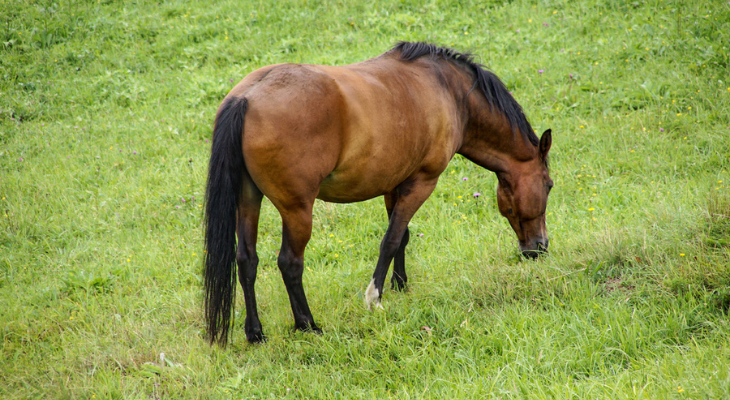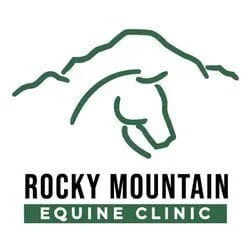
Could Your Horse Have Hay Belly?
A low-hanging, big belly could mean that your horse has hay belly. This condition affects horses of all ages and is caused by low-quality hay.
What Is Hay Belly?
Hay belly happens when your horse eats hay that has too much fiber and not enough protein. Protein is essential for muscle mass and strength, good digestion, cell repair, and a healthy immune system. Fiber provides energy and keeps your horse's stomach comfortably full.
Unlike protein, fiber isn't broken down by your horse's gastrointestinal system. Instead, the fiber ferments in the large intestine. The higher the fiber content of the hay, the longer it ferments in the large intestine. This process leads to the creation of gases that enlarge your horse's abdomen.
What Are the Symptoms of Hay Belly?
If your horse has hay belly, you may notice:
- Distended Gut. In addition to the increase in size, your horse's abdomen will hang much lower than normal. But remember, hay belly isn't the only reason for a large belly. Pregnancy, parasites, colic, a stomach ulcer, or Cushing's disease could also be to blame.
- Decrease in Muscle and Fat. Horses with hay belly tend to be skinny everywhere but their bellies. You may be able to see the ribs easily or notice that the neck, chest, or withers aren't quite as muscular.
- Poor Coat. Your horse's normally shiny coat may become dull and lifeless due to the lack of nutrients in low-quality hay.
How Is Hay Belly Treated?
You can improve your horse's condition by:
- Taking a Close Look at Your Horse's Feed. Is your current hay comprised of grass or legumes? Legume hay contains more protein and nutrients and might be a better choice if your horse has hay belly.
- Buying High-Quality Hay. It's important to consider the ratio of stems to leaves when you purchase hay. Hay with more stems than green leaves contains more fiber and will be difficult for your horse to digest. The American Association of Equine Practitioners (AAEP) recommends buying legume hay that's been harvested when the plants are in early bloom. If you choose grass hay, look for hay that's been harvested before seed heads form.
- Inspecting Before You Buy. Hay that smells or looks moldy or contains dirt and debris should be avoided. Although it will take longer, it's a good idea to inspect all, or at least most, of the hay bales before you buy them. Reject any bales that don't meet your standards.
- Providing Grain Supplements. A grain supplement may be needed if your horse isn't getting enough protein from its feed.
- Storing Hay in a Safe Place. Keep hay in a clean, dry location out of the sun and weather. Put recently bought hay in the back to ensure that you use older hay first. The AAEP recommends using hay within a year after you buy it.
- Arranging for a Hay Analysis. If you're still concerned about the quality of the hay, send a sample to a certified forage laboratory. The lab will provide a complete report on the nutrients in the hay, which will help you make the best decisions when you purchase hay or feed.
Do you have questions about hay belly or choosing the ideal feed for your horse? Give our office a call and we'll answer your questions and help you improve your horse's condition.
Sources:
Horse & Rider: Maybe He’s Fat. Maybe It’s Hay Belly, 11/29/2021
American Association of Equine Practitioners: 10 Tips For Choosing The Best Hay For Your Horse
